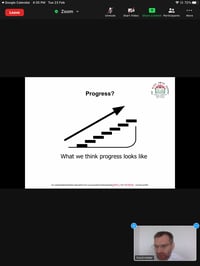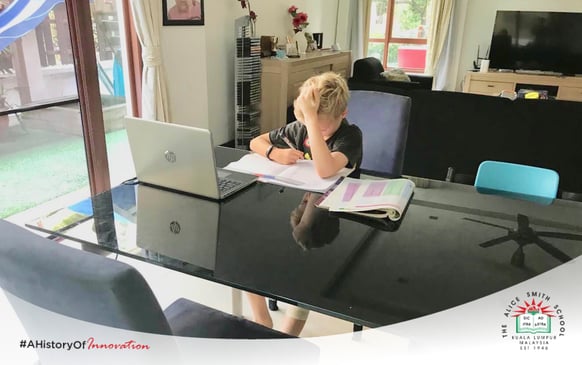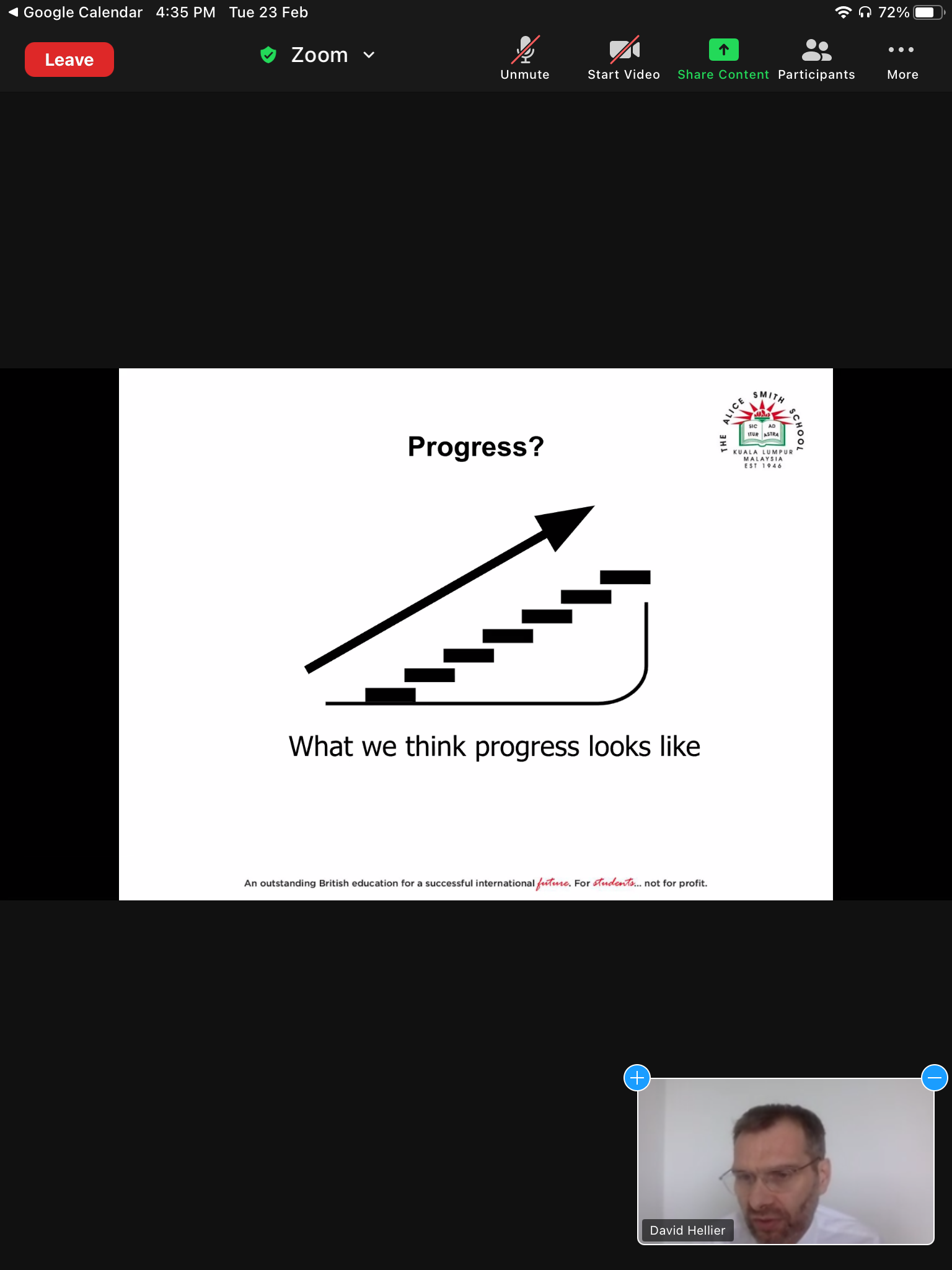We're going back to school! Yes on March 8th we will welcome all our students back to campus after spending most of this term engaged in distance learning due to the pandemic. We'll be very pleased to see them but a question on many parents minds is 'How much impact has the school closure and the pandemic had on learning?'
Our recent Primary parent workshop focused on this topic with our Principal, Alan McCarthy and Vice Principal David Hellier, spending time discussing how learning happens, how the pandemic may have impacted learning and what our teachers have done to adapt.
How does learning happen?

"Learning happens when people think hard", explains David Hellier, "Learning is the ability to learn new skills and knowledge over the long term and re-use them in a different context."
It rarely happens in a nice orderly fashion like going up a stair case. It's complicated and messy and we can't actually see it. If you think about learning a new skill, such as riding a bike or swimming, not all children do this at the same age and the length of time that skill takes to acquire varies significantly from child to child.
It's the same with any learning. Students do not progress in the same way, through the same content, over the same period of time and a teacher's expectation of each student varies from student to student. As UK data consultant James Pembroke puts it; "Progress is catching up, filling gaps, deepening understanding and overcoming barriers." In our curriculum you can see this in the constant revisiting of skills and knowledge to ensure the children have really learnt the material in a deep way.
Think of learning as waves, rather than a staircase, moving gently forwards, falling slightly back and then moving forwards again
Our teachers are constantly monitoring, assessing and reviewing your child to look for how they can develop them and move them on with their learning. They review each child termly with their year leaders, holding professional dialogues to consider how can they help each individual child progress. Asking 'Are we stretching? Are we challenging? Are we supporting?'.
Learning cannot be accelerated, it is a change in the long term memory
This has continued throughout the recent periods of distance learning and our personalised approach together with how well our teachers know their students will enable us to assess where each child is and what needs to happen next in their learning.
Signs of COVID-19 and School Closure Impact Elsewhere
Our Principal, Alan McCarthy, shared two studies from the UK involving teacher assessed data and standardised assessed data pre and post periods of school closure. These studies both demonstrated a decrease in attainment and achievement. Interestingly, one study also demonstrated a steady increase in attainment once schools reopened. More details can be found here: Education Endowment Foundation (EEF) and Juniper Education Review UK. However, Mr McCarthy cautions that ‘the context of the UK is very different to ours here at Alice Smith and Malaysia’ and that any comparisons would be difficult to make.

What are our teachers are seeing
Our students are learning and making progress through a very good distance learning programme predominantly delivered via synchronous teaching. The pace of teaching is somewhat slower than it is when conducted on campus and therefore units of learning are taking longer.
How are we adapting?
Whilst we may see a slight narrowing of our curriculum, teachers are focusing on greater depth as this results in deeper understanding and learning that is embedded.
We've put greater focus on knowledge and skills in the core subjects of maths, reading and writing and our teachers have developed virtual 'checking for understanding' techniques.
Final thoughts
We must be very mindful of the language we use around our students. The rhetoric around catch up and learning loss is unhelpful. Our children have shown themselves to be very adaptable and resilient and we must use positive language to ensure our students do not develop a deficit mindset. Learning is a change in long term memory and cannot be fast tracked. Our teachers know their students very well and when our students return they will assess prior learning, then teach children what they need to learn next. This will be underpinned by a focus on supporting our students’ wellbeing through our pastoral programmes which are grounded in the principles of positive psychology.



